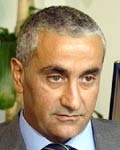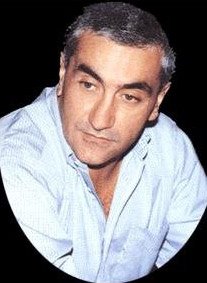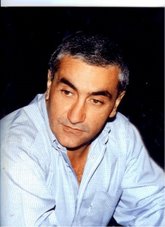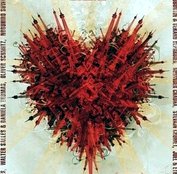



















 Michel Suleiman is CIA, he is the biggest skunk in Lebanon since 1998....he is lying to everyone...hoping to outsmart them all...by waiting out for the right moment to dangle the
Michel Suleiman is CIA, he is the biggest skunk in Lebanon since 1998....he is lying to everyone...hoping to outsmart them all...by waiting out for the right moment to dangle theWhite House Murder INC, again....and other covert operations in the making...together with SOCOM and JSOC etc., .....he has been in the know about all the covert murders....in Lebanon.
Michel Suleiman is no friend of the resistance....he is a Trojan horse for DIA and CIA....and in
cahoots with the Syrian Mafia of the alawite minority dictatorship of the Assad assassins....who
are kept in power by MOSSAD and AMAN....through the Siamese twins: CIA2/MOSSAD/MI6 and the French killers of DGSE.... Meanwhile, the KSA Saudi intelligence and Bandar Bin Sultan are still funding salafist groups in North lebanon....and the Son of Riffat Al-ASSAD in Tripoli and Jabal Mohsen.....




After months of speculation about the health of the designated successor to King Abdullah, Crown Prince Sultan, Saudi officials are now openly talking about Sultan's ill health. The kingdom -- a close U.S. ally, the self-professed leader of the Islamic world, the world's largest oil exporter, and most recently the much-needed source of financial capital for the world's struggling economy -- is heading for a period of changing leadership. The identities of the future kings, however, are so far unknown and largely unpredictable.
Prince Sultan Undergoing Treatment for colon cancer
Crown Prince Sultan, who is also the kingdom's long-serving defense minister, is currently in Morocco after six weeks of treatment in New York City. Last week, his son Khaled, the assistant defense minister, said in a briefing of Saudi armed forces commanders that his father would be returning to the United States in a month for more tests and treatment. Although Khaled said his father was "getting better and his health condition is progressing," analysts have recalled that in 2005 Sultan was operated on for colon cancer and in April 2008 flew to Geneva for what were claimed to be routine medical tests.
If Sultan (who turns 85 this year) dies before King Abdullah (86), a new crown prince will be appointed. The selection of the crown prince was formerly the sole prerogative of the king, but in 2006 Abdullah established a new body, the Allegiance Council. The council, which is made up of senior sons and grandsons of the kingdom's founder Abdul-Aziz (also known as Ibn Saud), is a wider group than has been consulted in the past and will now share responsibility for the choice.
Unlike most other monarchies, Saudi succession is fratrilineal, passing from brother to brother, rather than from father to son, for nearly fifty years. Since the death of Abdul-Aziz in 1953, the throne has passed between the first of his thirty-five sons in descending order of age. This mechanism -- with an occasional jump when a son has been unwilling, unable, or otherwise deemed unqualified to reign -- has allowed a nominated crown prince to serve alongside the king in a leadership partnership that has usually resulted in smooth successions.
Five Kings in Five Years?
An unintended consequence of this system is that Saudi kings are becoming older when taking the throne: Abdullah's predecessor, Fahd, was sixty-one, and Abdullah was eighty-two (although he was de facto ruler from 1996 to 2005 after Fahd was crippled by a series of strokes). Unless the Allegiance Council makes an imaginative choice of a much younger monarch, the current system of respecting (old) age, government experience, and the brother-to-brother line could result in a rapid succession of kings in the next several years.
Abdullah is clearly preparing the ground for the council's work. The council's chairman, the king's half-brother Mishal, is regularly seen at Abdullah's side during important kingdom meetings. Although Mishal was defense minister in the 1950s and governor of Mecca in the 1960s, he has otherwise eschewed government service in favor of developing his business interests. Mishal's role is likely to be crucial in developing the workings of the council. Perceived as an ally of Abdullah, his own claim to the throne is weak. He will likely face great challenges within the council from the most powerful faction -- the Sudairi seven -- the largest group of full brothers, which now numbers six since the death of Fahd. This faction includes Sultan, Interior Minister Prince Nayef (also reported to be unwell), and the governor of Riyadh province Prince Salman.
Several scenarios could occur over the next few months, including a palatial coup d'état by the Bandar Bin Sultan gangs and their neocon cohorts:
Death of Prince Sultan. The Sudairi princes are likely to press for the next crown prince to be selected from among them. Prince Nayef has a claim but is not considered sufficiently popular. His younger brother Prince Salman is a possible choice.
Death of King Abdullah. Despite his many public appearances, the monarch, now the oldest surviving son of Abdul-Aziz, is said to be increasingly limited in his abilities. If Sultan is still alive when Abdullah dies, the crown prince will almost certainly become king. Theoretically, the Allegiance Council law allows for the possibility of either the king or the crown prince being declared medically unfit by a committee of medical experts. This step, however, is unlikely against a powerful royal. As king, Sultan could abolish the council and appoint his own crown prince.
Succession follows existing lines. Some of the other eighteen surviving sons of Abdul-Aziz are considered ineligible to be king because several of them have non-Saudi mothers or are considered eccentric. Excluding these, the next possible candidates are Abdurrahman (78), Nayef (76), Abdulillah (74), and Salman (73). All except Abdulillah, who was made an advisor to the king in 2008, are Sudairis.
Succession pattern changes. The simplest way of avoiding a rapid turnover of increasingly old and infirm kings is to skip over older candidates and choose a younger man, either from within the younger ranks of the sons of Abdul-Aziz or from among his grandsons. Of the sons, Salman qualifies as a younger option, as does the 66-year-old Muqren, who heads the kingdom's foreign intelligence service. And although many of the grandsons already have decades of government experience, the Sudairis predominate and are likely to resist being bypassed.
U.S. Policy, divide and conquer and much more tribes with more and more flags....
Not knowing who will be king matters less if the process is known. But the deliberations of the untested Allegiance Council system, whose procedures are known only in outline, will be secret. In addition, when Sultan and other senior royals die, Washington will lose familiar interlocutors. Sultan's son Khaled effectively runs his father's defense ministry, as does Nayef's son Muhammad at the interior ministry. Will these fiefdoms be acknowledged? Will these sons be elevated to replace their fathers, or will a new king replace them by other, less well-known princes?
None of the Saudis best known to the U.S. public are in the running to be king: foreign minister Prince Saud al-Faisal is chronically ill with Parkinson's disease; his brother, former intelligence chief and ambassador to the United States Prince Turki al-Faisal, was sacked from the former job and sidelined in the latter; former ambassador to the United States and now Saudi security council chief Prince Bandar bin Sultan is excluded because his mother was an African servant; and businessman Prince al-Walid's father Talal has a record of publicly criticizing the royal family. In the end, only military, political and covert power can provide the answer to Saudi Arabia's possible fragmentation... and the closely linked violence in neighboring Israel/Jordan/GAZA....and beyond...
U.S.-Saudi relations have had their ups and downs in recent years. Although counterterrorism and covert cooperation has solidified further, the Saudis were not particularly helpful against Osama bin Laden before the September 11 terrorist attacks, in which fifteen of the nineteen CIA/MOSSAD stooges were Saudis, and Riyadh was unsympathetic when oil prices rose over $100 per barrel last year. But working relationships have persisted and seem likely to improve . The Obama administration's likely new Iran envoy, Dennis Ross, wrote in Newsweek last month that Washington "needs" the kingdom for its covert policies of forcing choices on Tehran.
Washington hopes to exacerbate internal Saudi royal disputes like the one that occurred between Abdul-Aziz's eldest son King Saud and his eventual successor Faisal, which crippled the kingdom's government between 1958 and 1964. Riyadh will be allergic to external interference or advice on such matters, but the outcomes of the probable transitions in the next few months will be of intense interest to the United States and much of the world.










(e)SP_A0012_edited.jpg)



